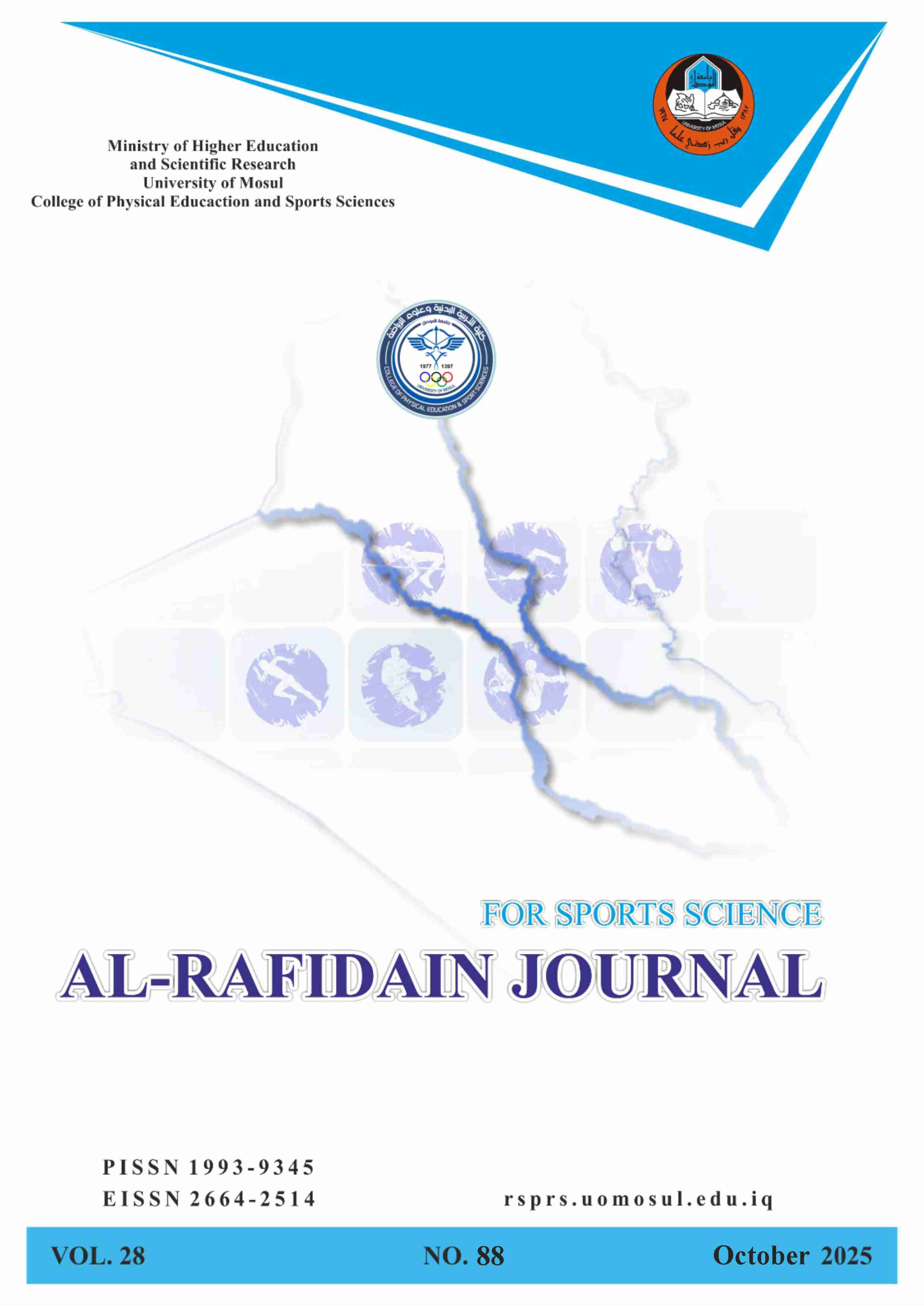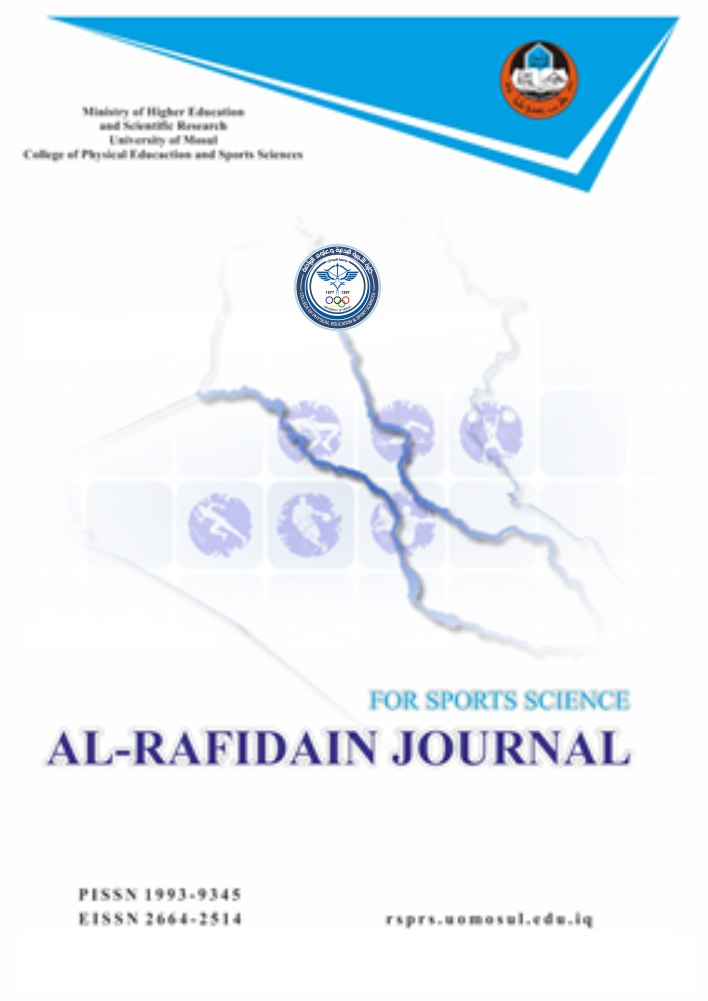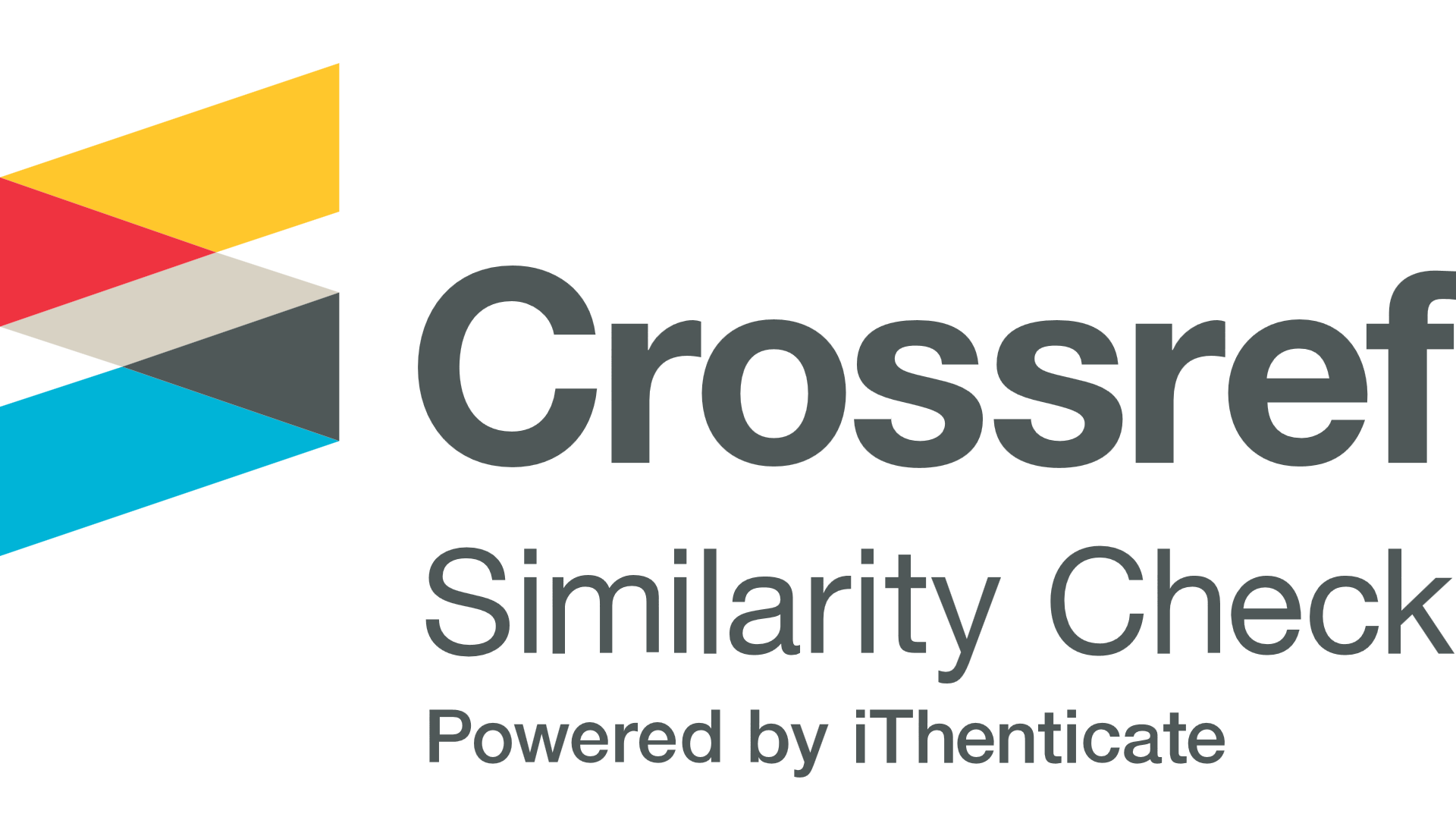The Relationship between Psychological Alienation and Physical and Skill Self-Esteem in Female Volleyball Players of Iraqi University Teams
Published
Oct 24, 2025Pages
380-393Abstract
This study aims to:
- Study psychological alienation among female volleyball players on Iraqi university teams.
- Assess physical and skill self-esteem among female volleyball players from Iraqi university teams.
- Explore the link between psychological alienation and physical and skill self-esteem among these players.
Methodology:
The researcher used the descriptive method because it suited the nature of the study. The research sample consisted of female volleyball players participating in the Iraqi Universities Championship finals for the 2024/2025 academic year, representing the following universities: University of Mosul, University of Al-Hamdaniya, Northern Technical University, University of Nineveh, Al-Mustansiriya University, University of Diyala, Islamic University, University of Basra, Al-Farahidi University, and University of Al-Mustaqbal. The sample included 88 players out of 109, which is 80.73% of the research population.
Data were gathered using scales that measure psychological alienation as well as physical and skill self-esteem. The researcher analyzed the data using statistical tools, including mean, standard deviation, percentage calculations, skewness coefficient, and Pearson’s simple correlation coefficient. All analyses were performed using SPSS.
Results:
- The research sample showed a high level of psychological alienation, as determined by comparing the mean scores to the hypothetical average of the scale.
- The research sample exhibited low levels of physical and skill self-esteem, as determined by comparing the mean scores to the hypothetical averages of the respective scales.
An inverse correlation was found between psychological alienation and physical and skill self-esteem.
References
- Abu Hatab, F., & Othman, S. A. (2008). Psychological assessment (1st ed.). Cairo, Egypt: Anglo-Egyptian Library.
- Allam, S. D. M. (2000). Educational and psychological measurement and evaluation: Principles, applications, and contemporary trends (1st ed.). Cairo, Egypt: Dar Al-Fikr Al-Arabi.
- Allam, S. D. M. (2006). Educational and psychological measurement and evaluation: Principles, applications, and contemporary trends. Cairo, Egypt: Dar Al-Fikr Al-Arabi.
- Al-Nabhan, M. (2004). Fundamentals of measurement and evaluation in behavioral sciences. Amman, Jordan: Dar Al-Sharq for Publishing and Distribution.
- Ferguson, G. (1981). Statistics and analysis in psychology and education. New York, NY: McGraw-Hill.
- Hassanein, M. S. (2004). Measurement and evaluation in physical education and sports (6th ed.). Cairo, Egypt: Dar Al-Fikr Al-Arabi.
- Ibrahim, M. A. M. (1999). Scientific foundations and statistical methods for tests and measurement in physical education (1st ed.). Amman, Jordan: Dar Al-Fikr for Printing, Publishing, and Distribution.
- Radwan, M. N. D. (2006). Introduction to measurement in physical education and sports (1st ed.). Cairo, Egypt: Markaz Al-Kitab for Publishing and Distribution.
- Allawi, M. H., & Radwan, M. N. D. (1982). Motor performance tests (1st ed.). Cairo, Egypt: Dar Al-Fikr Al-Arabi.
- Poirier, S. (2019). Psychometric characteristics of the questionnaire “Performance-Related Psychological Characteristics in Sports (CPRD)” in Spanish basketball players. Master of Expert in Physical and Mental Preparation, Movement, Balance, Performance, and Health Laboratory (STAPS).
- Al-Yasiri, H. S. M., & Al-Tai, O. A. H. (2008). Using the pull-up test to measure the short anaerobic capacity of the arm muscles based on weight, distance, and repetition variables according to the power equation. Journal of Physical Education, 20(2), University of Baghdad, Iraq.
- Khafaji, A. A. W. (2023). Absolute standard score for the pull-up test with bent knees for track and field athletes. Journal of Theories and Applications in Physical Education and Sports Sciences, 39(5), Faculty of Physical Education, Sadat City, Egypt.
- Qarah, K. (2020). The relationship of anthropometric measurements to specific physical fitness components in discus throw performance (ages 17–19): A field study at JABC Club, Constantine (Master’s thesis)—University of Larbi Ben M’hidi – Oum El Bouaghi, Constantine, Algeria.
- Hisham, L., & Hussein, A. (2018). Physiology of physical effort. Al-Amali Printing, University of Oran for Science and Technology, Algeria.
- Al-Hazzaa, H. B. M. (2009). Physiology of physical effort: Theoretical foundations and laboratory procedures for physiological measurements, Part 1. Riyadh, Saudi Arabia: King Saud University, Scientific Publishing and Printing.
- Al-Hashimi, S. M. (1999). Sports biomechanics. Mosul, Iraq: Dar Ibn Al-Atheer for Printing and Publishing.
- Al-Fadhli, S. A. K. (2010). Applications of biomechanics in sports training and motor performance (1st ed.). Baghdad, Iraq: Dar Dijlah.
Identifiers
Download this PDF file
Statistics
How to Cite
Copyright and Licensing

This work is licensed under a Creative Commons Attribution-NonCommercial 4.0 International License.







